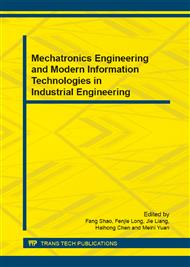p.223
p.228
p.231
p.235
p.239
p.243
p.247
p.251
p.255
Effect of Spark Timing on Performance of a Hydrogen Gasoline Engine
Abstract:
Hydrogen-gasoline blends is an effective way to improving the performance of spark ignition engine at stoichiometric and lean conditions. Spark timing is one of the important parameters affect the engine performance. This paper investigated the effect of spark timing on performance of a hydrogen-gasoline engine. A four cylinder, gasoline direct injection engine was modified to be a gasoline port injection, hydrogen direct injection engine. The hydrogen energy fraction was set as 0% and 30%. For a specified hydrogen addition, the engine was operated at four excess air ratios of 0.8, 1.0, 1.2 and 1.5. Under the specified excess air ratio condition, the spark timing was varied from 4 to 19°CA before top dead center (BTDC) with an interval of 3°CA. The test result showed that the indicated mean effective pressure (IMEP) climb up and then decline with the increase of spark advance. For hydrogen-gasoline engine, the optimum spark timing for the max IMEP was retarded at a specified excess air ratio. The max thermal efficiency appeared at the optimum spark timing.
Info:
Periodical:
Pages:
239-242
Citation:
Online since:
January 2015
Authors:
Keywords:
Price:
Сopyright:
© 2015 Trans Tech Publications Ltd. All Rights Reserved
Share:
Citation:


